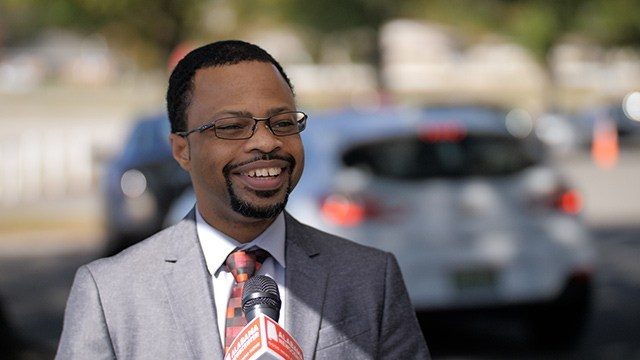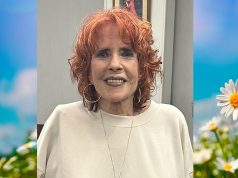The Birmingham Times
Dr. David Hicks, DO, Deputy Health Officer, Jefferson County Department of Health says there are several public health tools (e.g. social distancing, good hand hygiene, cough etiquette, wearing facial covering/masks, isolation/quarantine, contact tracing) recommended and proven to help decrease the spread of COVID-19. Here he talks to the Birmingham Times about the importance of vaccinations to finally help end this pandemic. These are edited excerpts from that conversation.
What is the most important thing for people to know about vaccines?
Dr. Hicks: “All of the current available COVID vaccines are safe and effective. For the safety part, these vaccines have been through rigorous scientific and medical evaluation and there has been more scrutiny on the safety data from these vaccines than potentially any other medicine or vaccine that has ever been developed and that’s from the federal government, research and medical community and the public health community…
“With the Moderna, Pfizer and Johnson and Johnson vaccines, they have gone through that rigorous review and the safety measures that they had to use during their vaccine trials did not change through this pandemic. The same evaluation and safety checks that they would do for any other vaccines remained the same.
“The other thing is the effectiveness. I like to use this analogy that in any given year when we give out the flu shot, the best you are probably going to get for effectiveness for that is about 60 percent. All these three COVID vaccines are way higher than 60 percent. To be able to get a vaccine that has the efficacy of 70, 80 or 90 percent is amazing. So, that’s why we caution people to not get hung up on comparing 80 versus 90… it is better than 40 percent. No vaccine is going to be 100 percent effective but if you’re at 70, 80 or 90 percent then that is amazing effectiveness and efficacy on vaccines and so that is extremely impressive and this is from the scientific community that looks at all vaccines and that’s why we’re saying they are safe and effective.”
Do you think skepticism among African Americans plays a role in why we aren’t getting vaccinated?
Dr. Hicks: “I think it has had a role but I think that role may be overstated at this point. Months ago, we were talking about different groups who may be hesitant to be vaccinated and we have been really intentional about laying out the information and facts so people can make an informed choice. One of my colleagues said something really good that we have to be careful throwing out the vaccine hesitancy term when it’s really about people having the medical knowledge and information to make their decision so we can’t confuse lack of knowledge with hesitancy. These national polls are shifted. When you are saying how many people in communities of color are unwilling to get the vaccine and those numbers have changed and I attribute that to if you give people the knowledge than they are equipped with the necessary information to make informed choices for themselves.
What concerns you about the people being vaccinated?
Dr. Hicks: “What I am concerned about is hesitancy or resistance to getting vaccinated maybe more so in our younger population, our 20 and 30-year-old groups. I don’t think it is about a global hesitancy issue in communities of color, I think there are certain subpopulations within communities of color that don’t see the value in getting vaccinated at this point. I think as you get older and you realize you have more friends who were hospitalized or dying and you yourself have gotten sick, where as you get older you see that risk in your face more direct than otherwise and I think that’s why you have people clamoring to get the vaccine that’s older. We need to focus our efforts, in my opinion, on the younger demographic so that they are going to be willing to get the vaccine at the same level as any other group.”
Why is it important for the African American community to get vaccinated?
Dr. Hicks: “African Americans and other minority groups are far more likely to be hospitalized and be sicker with complications and die from COVID. With that being said, in order to change that and those numbers, there should be a proportionate higher number of African Americans getting vaccinated to protect the African American community. If African Americans get vaccinated less, that is essentially guaranteeing that these disparities in healthcare outcomes for COVID, complications, hospitalizations and death is going to persist and it could get worse. We know that for reasons that has nothing to do with genetic makeup, are why people of color are at higher risk and these are more systemic, deeper issues. For example, historical and structural racism, inequities in income, differences in types of jobs people of color may have versus others and that could put them at higher risk to getting exposed to COVID-19 and there are other social determinants of health that impact the outcomes like the differences in educational attainment between different racial groups. Those are the reasons to why people of color are at higher risk of either COVID-19, heart disease, cancer, diabetes… so, with COVID, the true game changer besides social distancing and wearing masks… is vaccines. African Americans need to think about that… right now you can’t immediately change the income inequality in the United States or immediately change the accessibility of top notch education universally… but the one thing you can do is get vaccinated as long as it is available to you . . .this is the one thing that we know for sure that can further protect the community from suffering these inequities in hospitalizations, complications and death from COVID-19.”
For more on Jefferson County Department of Health visit www.jcdh.org




